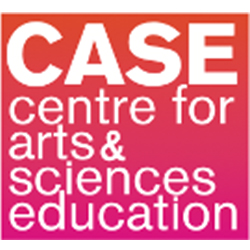This case study describes a special edition of the European Project Semester at the course Sustainable Packaging Design and Innovation at the Faculty of Industrial Design Engineering at The Hague University of Applied Sciences (Fall Semester 2017). In this special edition, unique cooperation took place between 12 parties. The parties were three research institutes, six universities, and three companies. Some parties have developed an educational module focused upon sustainable and circular packaging design, including the use of a dedicated tool for life cycle assessment. This module was embedded in the regular EPS. At The Hague University of Applied Sciences, an international class of 16 students worked in four teams on a real-life design assignment. They were offered a wide range of lectures, workshops, pitches, and presentations. The chapter concludes with a review of the followed processes and organizational, managerial, and practical concerns. Although run as a unique edition, all parties discuss to continue this cooperation.
DOCUMENT

Mental health literacy (MHL) interventions in secondary schools may help to improve competencies that adolescents require to stay mentally healthy and seek help if mental health problems arise. These MHL interventions should be tailored to the needs of adolescents and educational professionals (EPs) to reach sustainable implementation and long-term effectiveness. However, evidence is lacking on these needs. Thus, our aim was to explore their experiences with, and perspectives on, mental health help seeking and needs regarding MHL interventions. We performed online focus group discussions and interviews with adolescents (n = 21; 13–19 years) and EPs (n = 12) and analyzed the data using directed content analysis. We identified three themes related to mental health help seeking: (1) Limited MHL competencies of adolescents, (2) Limited competencies of EP to provide mental health support, and (3) Limited mental health promotion in the school environment. We further identified three themes regarding MHL interventions: (1) Addressing basic mental health knowledge and skills, (2) Interactive and easily accessible, and (3) Sustainable implementation. Improving the MHL competencies of adolescents and EPs, and creating a mental health-literate school environment can promote adolescents’ mental health help seeking. Our findings highlight the importance of developing MHL interventions that are tailored to both adolescents’ and EPs needs.
DOCUMENT
As the Dutch population is aging, the field of music-in-healthcare keeps expanding. Healthcare, institutionally and at home, is multiprofessional and demands interprofessional collaboration. Musicians are sought-after collaborators in social and healthcare fields, yet lesser-known agents of this multiprofessional group. Although live music supports social-emotional wellbeing and vitality, and nurtures compassionate care delivery, interprofessional collaboration between musicians, social work, and healthcare professionals remains marginal. This limits optimising and integrating music-making in the care. A significant part of this problem is a lack of collaborative transdisciplinary education for music, social, and healthcare students that deep-dives into the development of interprofessional skills. To meet the growing demand for musical collaborations by particularly elderly care organisations, and to innovate musical contributions to the quality of social and healthcare in Northern Netherlands, a transdisciplinary education for music, physiotherapy, and social work studies is needed. This project aims to equip multiprofessional student groups of Hanze with interprofessional skills through co-creative transdisciplinary learning aimed at innovating and improving musical collaborative approaches for working with vulnerable, often older people. The education builds upon experiential learning in Learning LABs, and collaborative project work in real-life care settings, supported by transdisciplinary community forming.The expected outcomes include a new concept of a transdisciplinary education for HBO-curricula, concrete building blocks for a transdisciplinary arts-in-health minor study, innovative student-led approaches for supporting the care and wellbeing of (older) vulnerable people, enhanced integration of musicians in interprofessional care teams, and new interprofessional structures for educational collaboration between music, social work and healthcare faculties.
Wat versterkt de beroepsidentiteit van de zorgprofessional?To be continued.Het verbeteren van de vorming van de professionele identiteit (PI) en interprofessionele identiteit (IPI) van zorgprofessionals door onderwijs, bij- en nascholing.
Leraren van de Montessori Scholengemeenschap Amsterdam (MSA) hebben binnen de grootstedelijke context te maken met grote uitdagingen ten aanzien van diversiteit en kansengelijkheid. Die uitdagingen vragen om duurzame veranderingen van praktijken en routines in een school en daarmee een gezamenlijke inzet van alle betrokkenen op team- en organisatieniveau. Het gezamenlijk vinden van antwoorden op die uitdagingen vraagt immers om het ontwikkelen en bundelen van kennis en expertise, met andere woorden om het met en van elkaar leren over grootstedelijke onderwijsvraagstukken. Dit vraagt om wezenlijke veranderingen in de wijze waarop leraren van en met elkaar leren. Om die veranderingen te initiëren is een integrale en systemische aanpak nodig waarin interventies worden doorgevoerd om leren op team- en organisatieniveau te stimuleren. De aanpak van dit praktijkprobleem vraagt om een herijking van het beroepsbeeld en –structuur door de leraar als teamspeler te profileren, om wezenlijke transities in de wijze waarop professionalisering van de leraar binnen MSA georganiseerd en uitgedragen wordt en om fundamentele veranderingen in de inrichting van de schoolorganisatie. Dat leidt tot de volgende hoofdvraag: Hoe kan ik interveniëren in een conventioneel schoolsysteem om het leren op team- en organisatieniveau te versterken teneinde bij te dragen aan duurzame school- en onderwijsontwikkeling? Hierbij is de verwachting dat door veranderprocessen en weloverwogen interventies in gang te zetten die zowel de leraar als andere betrokkenen in een schoolsysteem ertoe aanzetten om in georganiseerde vorm met en van elkaar gericht te leren er een duidelijke leercontext gerealiseerd wordt waardoor de leeropbrengsten duurzame school- en onderwijsontwikkeling versterken. Doel van dit PD-traject is derhalve om een verschuiving te realiseren van individueel leren naar team- en organisatieleren binnen MSA waardoor leraren en andere betrokkenen binnen de school gezamenlijk effectiever vorm geven aan duurzame school- en onderwijsontwikkeling.
Centre of Expertise, onderdeel van Hogeschool iPabo, Amsterdamse Hogeschool voor de Kunsten, Avans Hogeschool, +3
